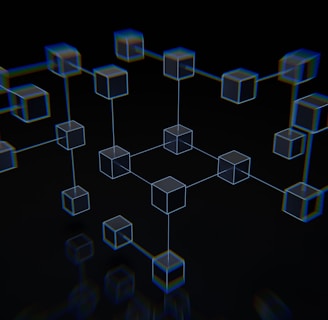Embracing the Future: How Blockchain Technology is Revolutionizing Information Security & Governance
In the digital era, where data breaches and cybersecurity threats are rampant, the quest for robust security measures is more crucial than ever. Blockchain technology, once primarily known for underpinning cryptocurrencies like Bitcoin, is now emerging as a groundbreaking solution in the realms of information security and governance. This blog post delves into how blockchain is revolutionizing these fields, presenting new opportunities and challenges for professionals, especially those associated with ISACA.


Introduction
In the digital era, where data breaches and cybersecurity threats are rampant, the quest for robust security measures is more crucial than ever. Blockchain technology, once primarily known for underpinning cryptocurrencies like Bitcoin, is now emerging as a groundbreaking solution in the realms of information security and governance. This blog post delves into how blockchain is revolutionizing these fields, presenting new opportunities and challenges for professionals, especially those associated with ISACA.
Understanding Blockchain Technology
At its core, blockchain is a decentralized digital ledger that records transactions across multiple computers. This decentralization ensures that no single entity has control over the entire database, making it incredibly secure and resistant to fraudulent activities. Each 'block' in the chain contains a number of transactions, and every time a new transaction occurs on the blockchain, a record of that transaction is added to every participant's ledger.
Blockchain’s Impact on Information Security
The immutable nature of blockchain is a game-changer for information security. Once data is recorded in a block, it cannot be altered without altering subsequent blocks, which requires network consensus. This makes data breaches exceedingly difficult.
Use cases in security are varied and impactful:
Secure Transactions: Blockchain's ability to maintain an incorruptible and transparent record of transactions helps prevent fraud and unauthorized activity.
Enhanced Data Integrity: With blockchain, the integrity of data stored is maintained, making it an ideal solution for critical sectors like banking, healthcare, and government.
Decentralized Storage Solutions: By dispersing data across a network, blockchain eliminates single points of failure, vastly improving data security.
Blockchain in IT Governance
Blockchain’s implications for IT governance are equally profound:
Transparency and Accountability: Every transaction on a blockchain is traceable, creating an environment of transparency and accountability, essential for good governance.
Regulatory Compliance: Blockchain can simplify compliance, as the immutable and chronological record-keeping aids in meeting regulatory requirements, especially in sectors with stringent data laws.
Smart Contracts: These self-executing contracts with the terms of the agreement directly written into code can automate and enforce governance policies and agreements.
Challenges and Considerations
While blockchain presents numerous opportunities, it also comes with challenges:
Scalability: As the number of transactions increases, the size of the blockchain grows, posing scalability issues.
Regulatory Frameworks: The decentralized nature of blockchain makes it challenging to fit into traditional regulatory frameworks, necessitating new legal considerations.
Adaptation and Education: For many organizations, especially those ingrained with legacy systems, adapting to blockchain requires significant change management and education.
Future Outlook
The future of blockchain in information security and governance is promising yet uncertain. We foresee an evolution where blockchain becomes a staple in secure data handling and governance models. However, its full potential will only be realized through continued innovation, regulation, and education.
Our Role
As an association dedicated to the advancement of professionals in IT governance and security, ISACA has a critical role in guiding its members through these technological shifts. This includes providing education, resources, and a platform for professionals to explore and implement blockchain in their respective fields.
